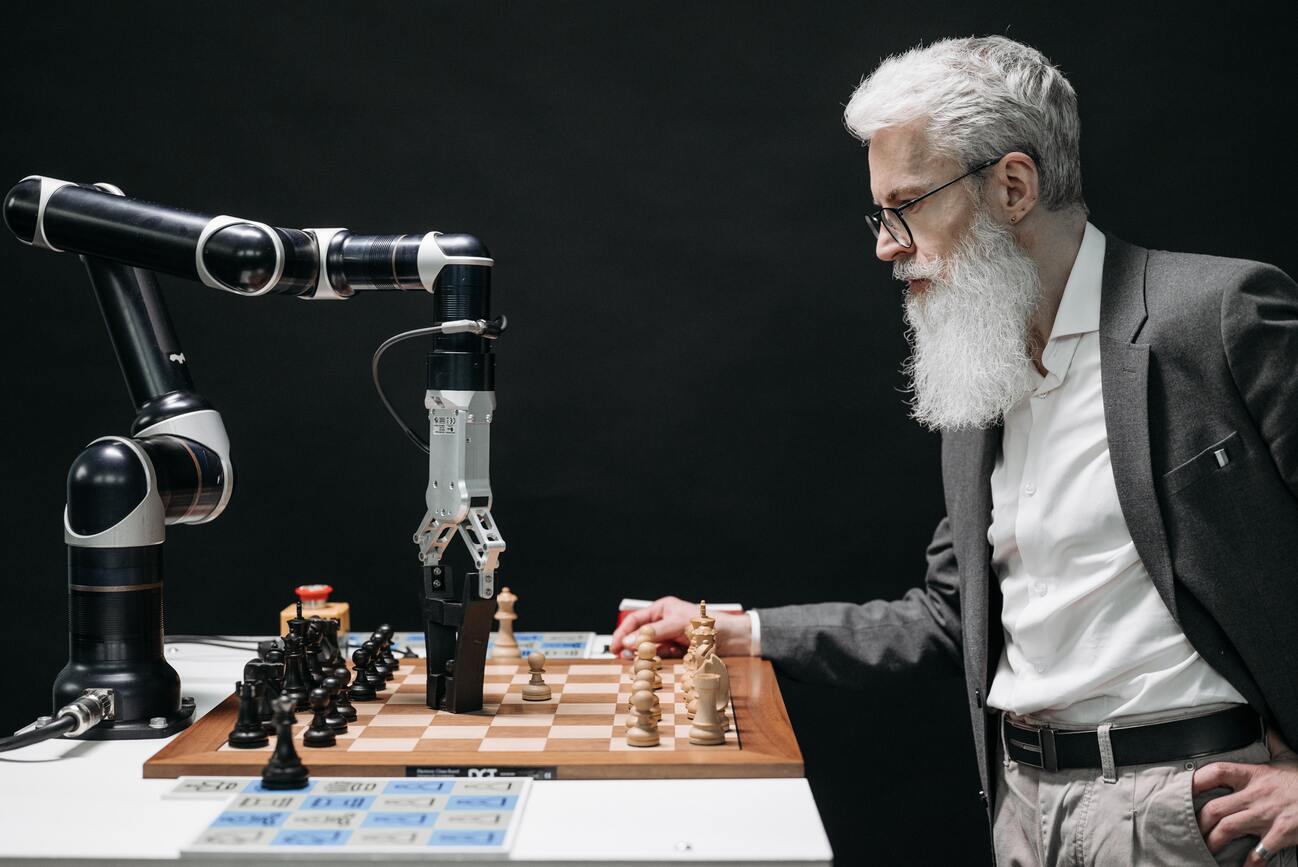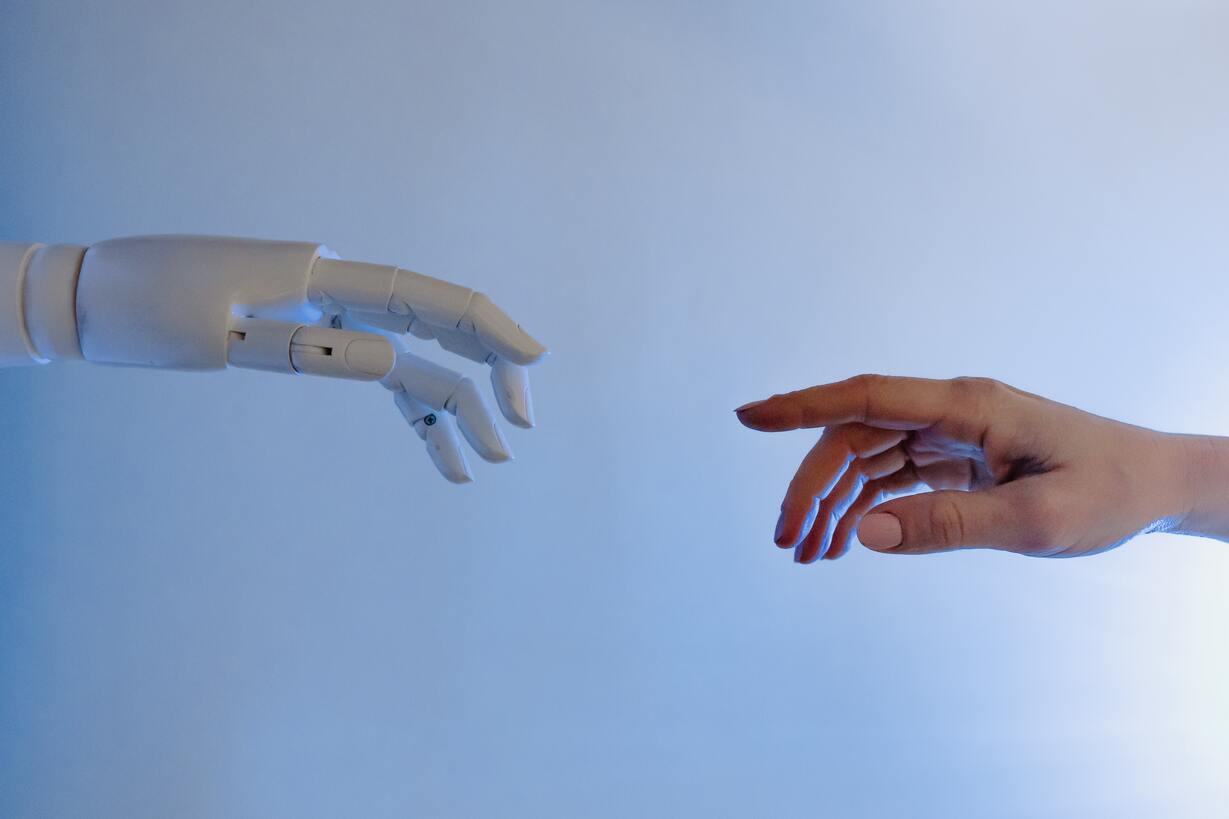
The Search Engine AI War between Microsoft and Google
Posted by: Omar Elkholy
June 7, 2023
The History of AI and Search Engines
At the dawn of the world wide web, navigating through the vast sea of information was a breeze. But as the internet grew exponentially, finding what we needed became increasingly challenging. This is where search engines stepped in, revolutionizing our online experience in the early 1990s. They provided us with the virtual roadmap we needed to navigate through the endless web pages, offering answers to our queries with remarkable ease. From Google to Bing, search engines have since become an indispensable tool for anyone surfing the web.
With the exponential growth of the web, navigating through the vast amount of information can be overwhelming. It's like being lost in a spider's web of countless byways, turnoffs, and dead ends. Thankfully, search engines came to the rescue, attempting to categorize the information based on your queries. Although they were initially not great, Google's innovative way of crawling and categorizing the web revolutionized the search engine game. Now, finding that pertinent bit of information has never been easier.
Back in 2000, something incredible happened - Google became the biggest search engine in the world. It was like the search Gods spoke and we all listened. Nowadays, we don't search for things - we Google them. It's like we've all collectively decided to abandon any other form of seeking information. In fact, it's so prevalent, it's become a verb just like hoovering - except, we're not cleaning our houses, we're satisfying our curiosity. It's amazing how one company has revolutionized the way we find answers to our questions!

Fast forward to 2023 and the landscape of search engines is in major flux. Google, once the king of search, is facing competition from the revolutionary large language model ChatGPT, which can "talk" to its users. OpenAI, the creator of the technology, received a whopping $10bn investment from Microsoft, granting the tech giant access to a supercharged version of the LLM for its search engine, Bing. In response, Google has launched its own chat-enabled search tool, Bard, in a bid to stay ahead of the game. The race is on to see who will come out on top in this game-changing battle of the search engines.
AI in Chatbots
In the world of chatbots, two names have recently been causing a stir: Google's Meena and Microsoft's Bing "Sydney". But, alas, both have fallen short in their public demos due to fundamental errors. Sure, they may have some cool features, but they can also be prone to confidently making things up when they don't have a concrete answer. So, while Google, Bing, and other search engines have their obvious uses, it remains unclear whether or not LLMs will become a complementary component or a frustrating hindrance to our digital search experiences.
As tech giants Google and Microsoft race to be the first to employ voice-activated search engines, questions arise as to whether the new wave of chatbots will have staying power. Despite initial enthusiasm, Microsoft has already encountered issues - limiting interactions with one chatbot due to its chatty and infatuated tendencies. Will the hype around chatbots stand the test of time? Only time will tell.
We live in an exciting era of search, with Google revolutionizing the industry since its emergence two decades ago. Innovations such as ChatGPT have enabled complex queries to be answered quickly and easily; however William Wang, director at UC Santa Barbara's Centre for Responsible Machine Learning cautions that simple questions should still be handled traditionally - proving that we've only just scratched the surface when it comes to maximizing our use of chat technology.
Where is the AI heading?
Would you believe that the interface you're using right now is just the beginning? According to tech expert Wang, things are about to get a whole lot better - and fast! However, not everyone is convinced that search is a suitable application for chat-based LLMs. Julian Togelius, an AI associate professor, argues that thinking of these LLMs as a new search feature is not the way to go. Instead, he suggests that the decision on how to use this technology should be put into the hands of everyday users. It's almost like a cool twist on the old saying, "come, and they will build." So, are you ready to see what these users come up with?

In a race towards a groundbreaking future in the world of search engines, both Google and Microsoft are gearing up to unveil new features that utilize artificial intelligence to give users a unique experience. Instead of the clunky, outdated format of clicking through boxes and links, the results will be streamlined and delivered in easy-to-understand answers generated by AI. Google recently teased itsBard chatbot, while Microsoft is set to boost its Bing search engine with a ChatGPT-inspired interface, promising to revolutionize the way we search for and access information. The future of search engines is bright, and these companies are pushing the boundaries to stay at the forefront of technology.
Microsoft may soon be unveiling their innovative ChatGPT feature within Bing, inviting users to test it out for themselves. This move could pose a serious threat to Google's longstanding search dominance, as Microsoft pushes the envelope with their rapid commercialization of OpenAI models. With its cutting-edge technology, ChatGPT has generated quite a buzz in the tech world and will undoubtedly be a hot topic among those curious about its power compared to Google's own AI offerings. Even with Google's impressive AI capabilities up to this point, ChatGPT's potential to revolutionize the way we search has everyone buzzing.
With its $10 billion investment, Microsoft is on the verge of unlocking the transformative potential of AI. By integrating OpenAI's models into its apps and services, Microsoft could gain a decisive edge over its competitors. This milestone could prove pivotal for Microsoft as it looks to make up for missed opportunities in the mobile market. Windows Phone promised the world but ultimately fell short, leaving a gap that OpenAI could help to fill. The implications are enormous - AI has the potential to change everything from education to healthcare, and Microsoft is positioning itself at the forefront of this technological revolution.
The last words
AI's capability has brought a revolution in the realm of digital marketing and communications, and one of its many applications is in the domain of SEO. If you're interested in knowing how we can assist you, don't hesitate to reach out to a Strategic Connection representative today!
Learn more about Strategic Connection's SEO Services.

